We all go through it, bad breath isn’t just embarrassing but at times unavoidable. But that doesn’t necessarily mean you have halitosis. Halitosis is the medical term for bad breath. There are numerous reasons behind bad breath and no halitosis doesn’t refer to bad breath after you’ve eaten something with a strong odor. The term refers to persistent bad breath. Individuals with the condition emanate a displeasing odor, easily noticeable by others close by, from the mouth.
Contents
The Causes of Halitosis
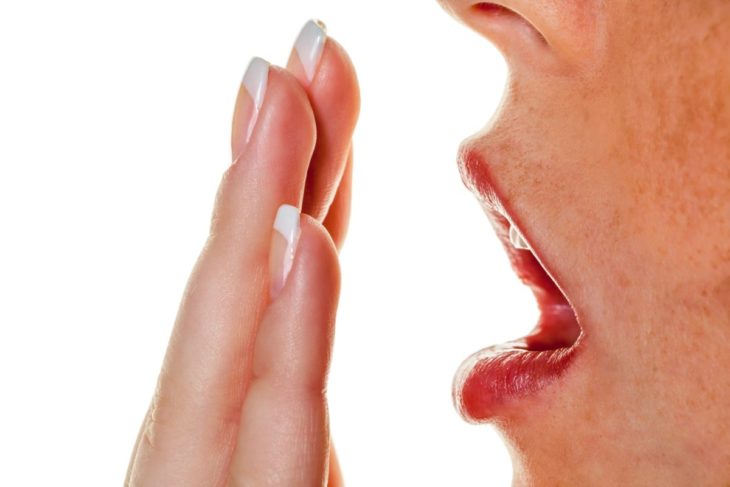
Source: aluxdental
Halitosis is caused by the bacteria that are present on both the tongue and teeth. The bacteria consume the debris leftover from food, drinks, and other substances you consume to release a displeasing odor. Therefore, halitosis is a direct result of poor oral hygiene. Other causes linked to the condition are gum disease from early stages in gingivitis to the more serious periodontitis. Dry mouth can also result in bad breath as the salivary glands cannot produce enough saliva to ensure the mouth is moist.
There have also been cases of halitosis linked to respiratory infections such as bronchitis. Whereas, advanced kidney and liver disease along with uncontrolled diabetes can also result in bad breath. But keep in mind that halitosis isn’t always a symptom of these medical conditions.
Besides medical conditions, halitosis may also be caused by food and other substances that are consumed. If you excessively consume the following without a proper oral regimen, you are likely to have persistent bad breath:
- Coffee: The drink has an intense flavor that stays well after you’ve had coffee. It also has an impact on the production of saliva, cutting it down which results in bad breath due to saliva not properly regulating the bacteria present in the mouth.
- Alcohol: Like coffee excessive alcohol drinking also has an impact on saliva production.
Sugary drinks and food: Bacteria in the mouth feast on sugar resulting in those with a high sugar diet are more likely to develop halitosis. - Tobacco: The substance is linked to more than just bad breath as it can cause serious oral health issues such as mouth cancer.
- Medication: There are numerous medications that result in dry mouth. You need to consult your doctor to figure out whether dry mouth is a side effect of a medication you are taking and potentially look for alternatives or take steps to ensure your mouth doesn’t dry out easily.
Symptoms Linked to Halitosis
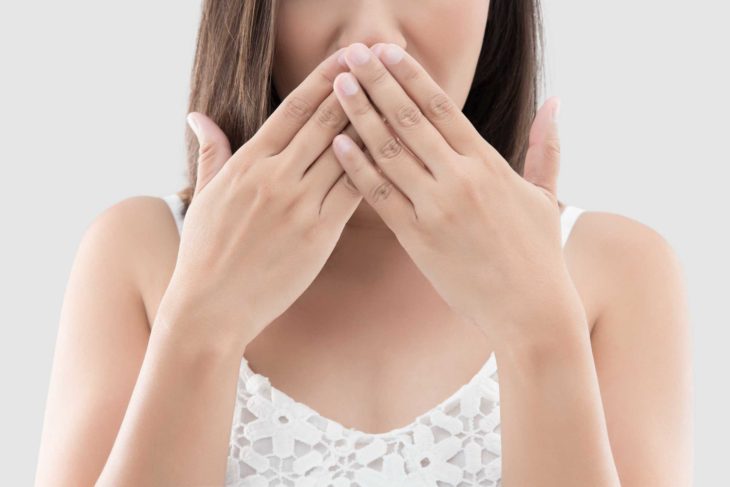
Source: diabetes
The simple way to tell is through the bad breath. At times, people don’t really notice it themselves but have others tell them. There are other symptoms related to halitosis that can help you determine if you have it or not:
- Sour taste in the mouth
- Dry mouth
- A coating on the tongue
How to Get Tested for Halitosis
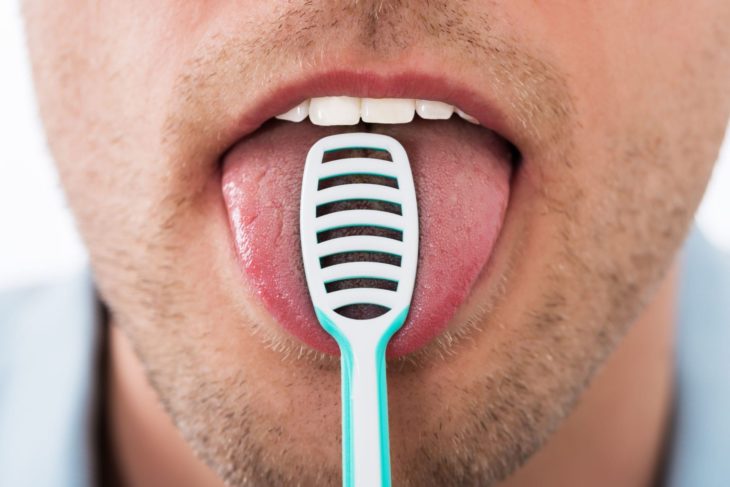
Source: familydoctor
Many people may claim to have halitosis even when they don’t. Due to bad breath being looked down upon socially, a lot of individuals have a fear of bad breath, also known as halitophobia. For individuals with halitophobia or anyone that may feel they have bad breath, you can get tested.
The experts at Modern Day Smiles Dentistry Tampa suggest going to a dentist to get yourself checked. The dentist will conduct an oral exam and look at your dental history. There is a predefined scale set to measure the unpleasantness of an individual’s breath and your dentist can check how your breath measures on the scale. The scale helps detect if there are any halitosis related compounds. The dentist will also likely scrape your tongue and check for gum disease to get a better read of your oral health.
Treating Halitosis
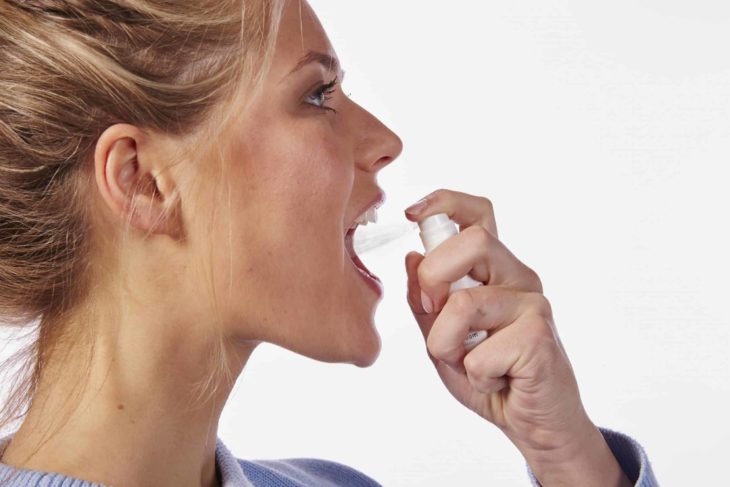
Source: bluemcare
The treatment of halitosis would depend on the cause. You can consult your dentist to help determine the cause. However, there are some general steps you can take to prevent bad breath:
- Brush your mouth thoroughly, twice a day. You need to ensure to brush the teeth, gums, and tongue to get all bacteria present in the mouth.
- Floss at least once a day to get rid of bacteria present between the teeth and in the gemlike.
- Use a mouthwash to help rinse the mouth of bacteria.
- Go to your dentist for regular checkups, they can help diagnose halitosis as well as other oral problems linked to it such as gum disease.
- If you smoke or consume tobacco in any way, you should quit.
- Chewing sugarless gum can help ensure your mouth doesn’t dry out.
- Drinking at least 8 glasses of water in a day to help your mouth stay moist and you stay hydrated.
If bad breath is related to a health problem such as diabetes or sinus infection then it will likely persist until you have the underlying medical issue treated. There are also cases of bad breath due to medication. You need to inform your doctor if that is the case to look for alternative medicine or the best way to go about treating bad breath.
Masking Bad Breath
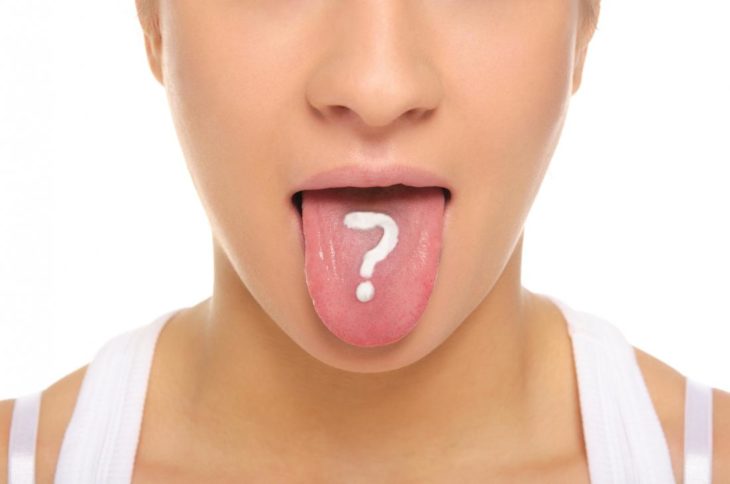
Source: badmouthodour
For those suffering from halitosis, you can mask bad breath. This doesn’t mean you eliminate it but hide it. This is more relevant to those that have halitosis due to a medical condition rather than bad oral hygiene. The best way to mask bad breath is through good oral hygiene.
Brushing twice a day for two minutes each time. Flossing daily and using a dentist-recommended mouthwash to kill germs that you wouldn’t normally while brushing.
Chewing sugarless gum doesn’t just freshen up your breath but also helps keep your mouth moist as it promotes saliva production.
Being more careful about what you eat and consume.
Having halitosis is not the end of the world. While it is embarrassing, the condition is curable with the help of a dentist and good oral hygiene. So don’t lose hope if you’ve been diagnosed with it. Just go over the proper treatment with your dentist and in no time, you will be able to kick halitosis to the curb.
